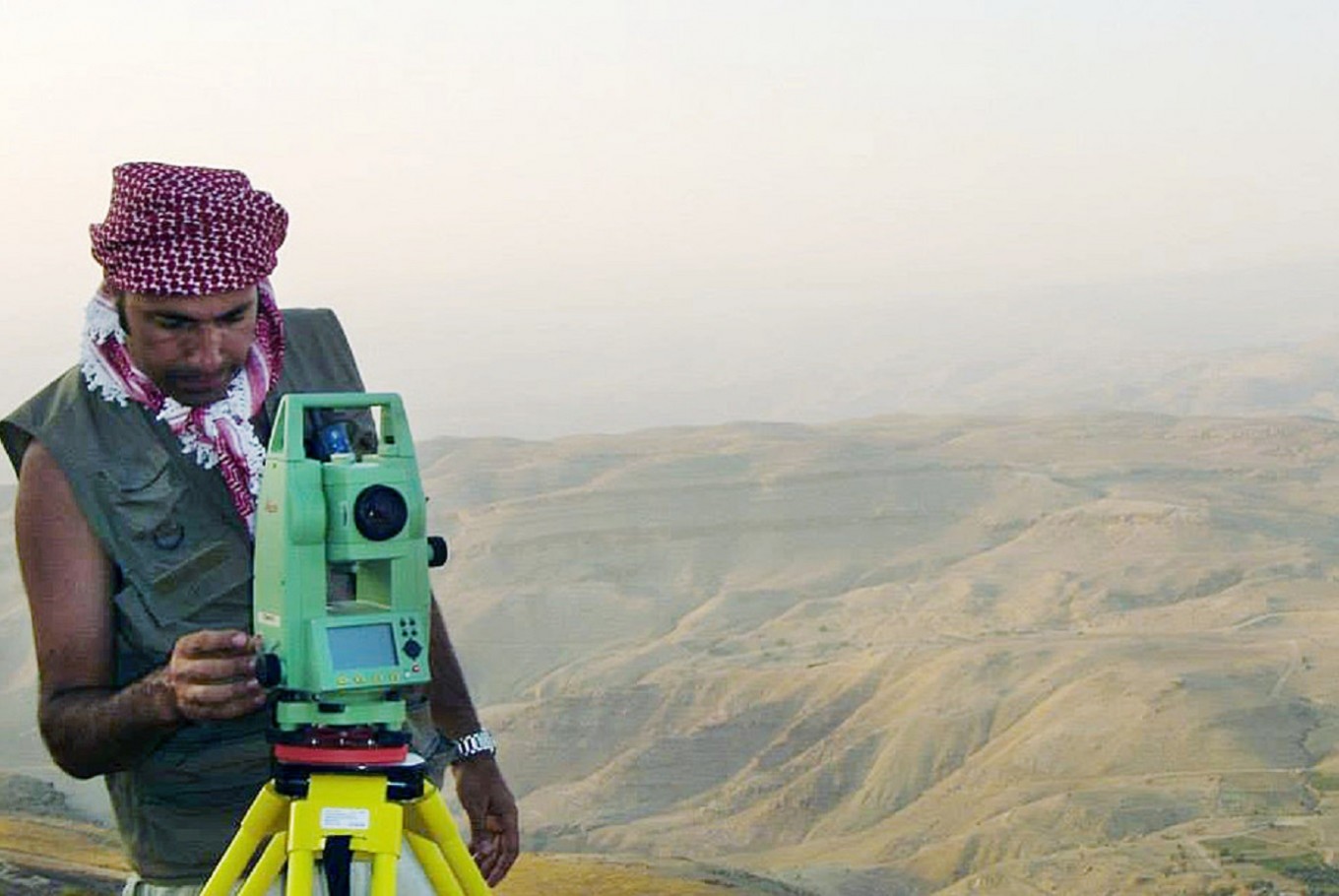Michele Raddi: The joy of sharing archeological knowledge
“You cannot build anything without first considering archeology in Italy. "
Change Size
 Research activities: Michele Raddi checks on his instruments during one of his research projects in a desert located in Jordan. (Michele Raddi/File)
Research activities: Michele Raddi checks on his instruments during one of his research projects in a desert located in Jordan. (Michele Raddi/File)
There are many things to love about Italy, such as cuisine, fashion, soccer and coffee.
Italians also take pride in their respect toward their heritage as described by professor Michele Raddi, one of the most well-known archeologists from the boot-shaped country.
“Archeology and heritage preservation in Italy are very, very important,” Raddi told The Jakarta Post during an interview at the Istituto Italiano di Cultura (IIC) in Cokroaminoto, Menteng, Central Jakarta, recently.
Pride in heritage and archeology is so strong in Italy that Raddi said development policies had to consider those factors before constructing anything in a certain area or region.
“You cannot build anything without first considering archeology in Italy. They [the authorities] will check on the area or the region before you can build roads, airports, or buildings,” Raddi said.
Born in the Isernia province of the Molise region in Italy, Raddi has developed a strong reputation in the field of archeology.
A graduate of archeology at the University of Sapienza in Rome, Raddi has worked for various organizations in Italy and across the globe, teaching students, researching and sharing his vast knowledge of archeology.
Read also: Pope Francis gives TED Talk of his own
In Italy, Raddi works as an associate director at the American Institute for Roman Culture (AIRC), a non-profit United States educational organization that works tirelessly to preserve and protect Rome’s extraordinary and unique cultural legacy through education, outreach and action.
Raddi has also conducted archeological research and excavations in various parts of the world, such as in Jordan and in Southeast Asian countries.
During the past five years, Raddi has made Indonesia one of his base camps to share his archeological knowledge by living in Surabaya, East Java, and for the last two years, he has also worked as an associate professor of archeology at the Udayana University in Badung, Bali.
“At Udayana, I am a professor of research and methodology of excavation. I teach about the technology for archeology research, particularly in the application of the various innovative instruments used in archeological research. This is a very important discipline if you want to be an archeologist,” Raddi said.
He said he decided to teach archeology at the university because he saw a lot of potential in the institution and its students.
Read also: Celebrating the combat cooks
“Udayana is a very good university and I learned that there is a very big interest for the methodology and the application of technology of archeology,” he said.
Raddi enjoys his time teaching and conducting archeological research in Indonesia because he believes there are a lot of stories from the past waiting to be unearthed in the country.
“Indonesia is one of the most important countries for archeology research of prehistoric times,” he said.
Other than teaching, he has also been contributing to numerous archeological projects in Indonesia with the assistance and cooperation of the IIC, the Italian embassy in Jakarta and government authorities.
In September last year, Raddi was involved in an archeological mission in Borneo, during which he and his team — consisting of researchers from the University of Ferrarra in Italy, Rovira i Virgili University in Taragona, Spain, and Udayana University — tried to reconstruct the first settlement in Indonesia with the latest methods and technologies of archeological research.
From Raddi’s experience working with young archeology students from Indonesia, he had high expectations for them to continue their studies abroad.
“I would really love to see students from Indonesia come to Europe and continue their education [...] Those who can go to Europe should go to Italy, Germany or England for archeology training,” he said.









